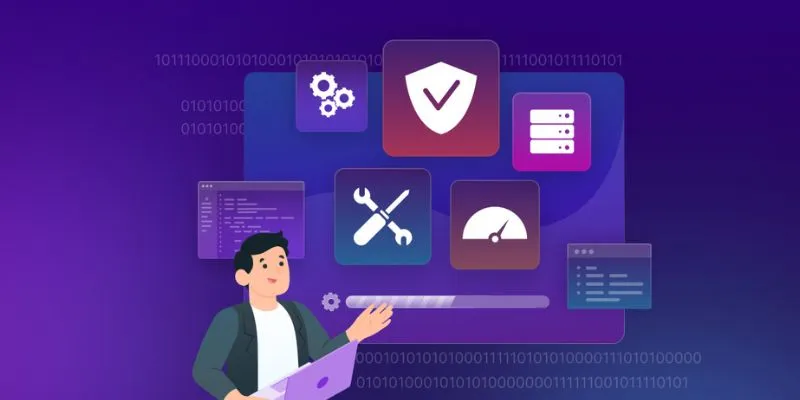Software testing has always been a crucial component of the software development process. It ensures that applications work well, are reliable, and are easy to use. However, as applications become more complex and the demand for quicker releases grows, traditional testing methods can’t keep up. This is where Artificial Intelligence (AI) and automation come in to change how testing is done. In this blog, we will explore how AI and automation are transforming the future of software testing, the benefits they offer, and why professionals should adopt these changes. For those looking to gain practical experience with these new techniques, enrolling in a Software Testing Course in Delhi at FITA Academy can help you build the skills needed to stay competitive in the changing QA field.
The Need for Smarter Software Testing
Modern software development employs agile and DevOps methods, which prioritize speed, teamwork, and continuous delivery. Because of this, testing needs to keep pace with development to maintain quality. Manual testing is essential for exploring and checking usability, but it cannot meet these demands on its own. AI tools and automation frameworks are invaluable. They accelerate testing cycles and help identify more complex problems that manual testing might overlook.
Role of Automation in Modern Testing
Automation has been a game-changer for repetitive and time-consuming tasks. Test automation enables QA teams to run regression tests, smoke tests, and unit tests more efficiently and consistently than manual execution. With the integration of Continuous Integration/Continuous Deployment (CI/CD) pipelines, automated tests can run with every code commit, reducing feedback loops and ensuring faster releases. Popular tools such as Selenium, Cypress, and Playwright have made automated web testing more efficient. However, the future goes beyond just automating test scripts; it’s about making automation more innovative, self-healing, and adaptive. A Software Testing Course in Trivandrum can help you master these advanced automation techniques.
AI-Powered Testing – A New Era
AI is transforming software testing in several exciting ways:
1. Predictive Analytics
AI can analyze past defects, user behavior, and testing data to predict where bugs are most likely to occur. Allows teams to prioritize high-risk areas, making testing more targeted and efficient.
2. Self-Healing Test Scripts
One of the biggest challenges with test automation is script maintenance. When an application’s UI changes, scripts often break and require manual updates. AI-powered frameworks can automatically identify these changes and update test scripts, significantly reducing maintenance efforts.
3. Smart Test Case Generation
AI tools can analyze requirements and automatically generate optimized test cases, ensuring better coverage with minimal manual effort. Reduces redundancy and improves the overall effectiveness of testing.
4. Enhanced Defect Detection
AI-based visual testing tools can compare screenshots and identify subtle UI issues, such as misalignments, missing elements, or color mismatches, that may have been missed during manual reviews. Learning to use these advanced tools can be part of a Software Testing Course in Chandigarh, helping professionals gain hands-on expertise in AI-driven testing techniques.
Benefits of AI and Automation in Testing
- Faster Release Cycles: Automated and AI-driven testing significantly reduces testing time, enabling quicker time-to-market.
- Improved Accuracy: AI minimizes human error by performing precise and consistent checks.
- Better Test Coverage: Intelligent test generation ensures more comprehensive coverage across different scenarios.
- Lower Maintenance Costs: Self-healing scripts reduce the overhead of manually updating test cases after every change, thereby lowering maintenance costs.
- Early Bug Detection: Continuous testing with predictive analytics helps catch defects early in the development cycle, saving costs and time.
Challenges and Considerations
While AI and automation offer tremendous benefits, organizations must also address challenges such as:
- Initial Investment: Setting up AI-driven testing tools and frameworks may require a significant upfront investment.
- Skill Development: QA engineers need to upskill in AI, machine learning, and automation scripting to effectively leverage these tools.
- Data Quality: AI relies on historical data; poor-quality or insufficient data may lead to inaccurate predictions.
Despite these challenges, the long-term ROI makes AI and automation a worthy investment.
The future of software testing lies in a collaborative approach where AI handles repetitive and predictive tasks while human testers focus on creativity, exploratory testing, and improving user experience. QA professionals who adapt to this shift will stay ahead in their careers.
If you are looking to gain expertise in automation tools and AI-driven testing practices, enrolling in a Software Testing Course in Cochin can help you build practical, industry-relevant skills. Hands-on training ensures that you can implement these technologies effectively and contribute to faster, higher-quality software releases.

